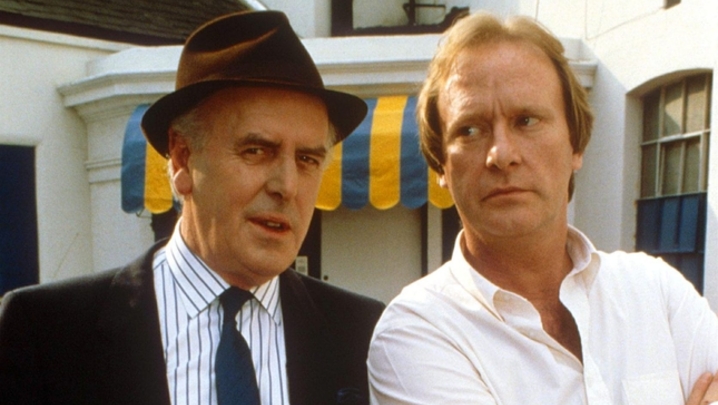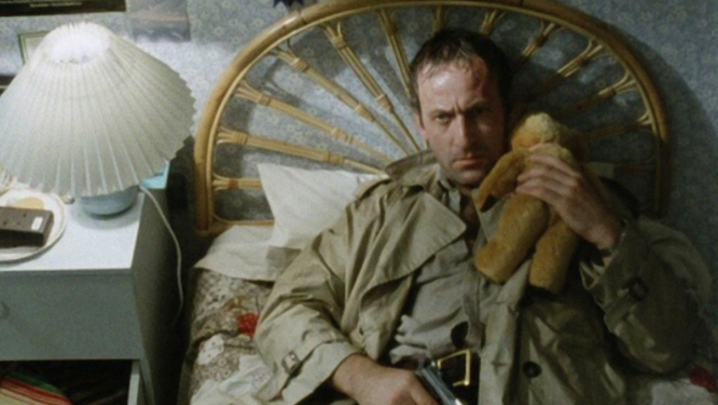A show that gently sends up the English middle class is built on a sharp script and consummate acting, says Matthew Bell.
There is, surely, no more fitting comfort comedy for lockdown than The Good Life, a tale of stay-at-home self-sufficiency. Tom and Barbara Good were the original artisan couple: sowing spuds, brewing booze and weaving wool.
The 1970s BBC sitcom was created by John Esmonde and Bob Larbey, friends since their Clapham schooldays, who had already created one comedy classic, ITV’s Please Sir!. That starred John Alderton as an idealistic English teacher at a tough secondary school.
The Good Life couldn’t have been more different. Set in Surbiton – now, thanks to the sitcom, a byword for English suburbia – the first episode begins with Tom Good (Richard Briers) suffering a mid-life crisis on his 40th birthday.
Stuck in a job he hates – designing plastic animals for cereal promotions – Tom quits the office and, with wife Barbara (Felicity Kendal), digs up the garden to grow veg and raise animals.
Next-door neighbour Jerry Leadbetter (Paul Eddington) works with Tom but, thanks to his native cunning and incessant crawling to the boss, he has climbed the career ladder and been made a manager. His wife, Margo (Penelope Keith) is humourless and an appalling snob. When the Goods bring home a goat, she looks down her nose and observes, “Degradation, misery and squalor – and we have to live next door to it”.
The set-up seems obvious: we should love the Goods for quitting the rat race and embracing a green, wholesome life; we should hate the Thatcherite Leadbetters. But not so fast: the lovey-dovey Goods are also smug and maddening, while Jerry is droll and perhaps even envious of Tom’s new life, and Margo is actually quite sweet.
The BBC One sitcom ran for just four series from 1975 to 1978 and, at its peak, attracted audiences of 15 million-plus. It took Esmonde and Larbey into the pantheon of double-act comedy writers, joining Croft and Perry (Dad’s Army), Clement and La Frenais (The Likely Lads and Porridge) and Galton and Simpson (Steptoe and Son).
For its quartet of stars, The Good Life brought TV stardom. Briers – the only actor who was well known at the time – went on to star in another Esmonde and Larbey sitcom, the much darker Ever Decreasing Circles. Years later, this was a big influence on Ricky Gervais when he (and Stephen Merchant) created The Office.
Briers achieved national-treasure status long before his death in 2013. He appeared in countless TV shows and performed Shakespeare on stage and film, for Kenneth Branagh, as well as voicing many ads and kids’ shows.
Kendal became a sex symbol for middle-class blokes (which speaks volumes about repressed English male sexuality) and has now clocked up more than 50 years on TV. She is also a multi-award-winning stage actor. Keith was given her own comedy vehicle, To the Manor Born, and still presents TV docs when not working in the theatre.
Fame arrived late for Eddington. Already in his late forties when The Good Life came along, he went on to play the title role of Jim Hacker in the much-loved satirical sitcoms Yes Minister and Yes, Prime Minister.
To the Young Turks of the alternative comedy scene, The Good Life stood for everything that was wrong with British sitcom. Vyvyan, the punk in The Young Ones, raged: “It’s so bloody nice! Felicity ‘Treacle’ Kendal and Richard ‘Sugar-Flavoured Snot’ Briers!.… They’re nothing but a couple of reactionary stereotypes, confirming the myth that everyone in Britain is a lovable middle-class eccentric. And I hate them!”
This, I think, is unfair. Four decades on, The Good Life seems far less of a period piece than the supposedly anarchic The Young Ones. A sharp script and consummate acting count for a lot in TV comedy. And, of course, what could be more modern than working at home in splendid isolation, pickling veg and baking bread?
The Good Life is available on BritBox.




